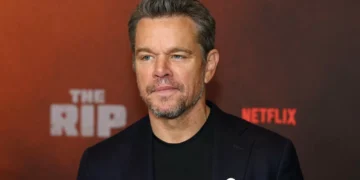In today’s globalized world, the demand for goods and services has increased exponentially, leading to a complex and often exploitative supply chain. This is especially true in the public health sector, where the procurement of essential medicines and medical equipment is crucial for saving lives. However, the supply chain for these life-saving products is often riddled with human and labor rights violations, including modern slavery. In order to address this issue, a new theoretical framework called ‘Push, Pull, Dance’ has been proposed by a group of authors to reimagine ethical supply chains in public health procurement.
The ‘Push, Pull, Dance’ framework, as described by the authors, is a three-pronged approach that aims to push, pull, and dance towards ethical supply chains in public health procurement. The ‘push’ aspect focuses on the role of governments and international organizations in setting and enforcing regulations and standards for ethical procurement. This includes measures such as anti-corruption laws, labor rights protections, and supply chain transparency requirements. The ‘pull’ aspect, on the other hand, emphasizes the role of consumers and civil society in demanding ethical products and holding companies accountable for their supply chain practices. Finally, the ‘dance’ aspect highlights the importance of collaboration and partnerships between all stakeholders involved in the supply chain, including governments, businesses, and civil society organizations.
One of the key strengths of the ‘Push, Pull, Dance’ framework is its holistic approach to addressing the complex issue of human and labor rights violations in public health procurement. By involving all stakeholders and addressing both the demand and supply sides of the issue, this framework offers a comprehensive solution that can lead to real and lasting change. It also recognizes the interconnectedness of the global supply chain and the need for collaboration and cooperation in order to achieve ethical procurement practices.
The authors of the framework also highlight the potential impact of ethical procurement on public health outcomes. By ensuring that the products and services procured by governments and international organizations are produced ethically, we can prevent harm and even save lives. This is especially important in the public health sector, where the products being procured are essential for treating and preventing diseases. By promoting ethical supply chains, we can ensure that these life-saving products are not tainted by human and labor rights violations, thus protecting the health and well-being of individuals and communities.
Moreover, the ‘Push, Pull, Dance’ framework also has the potential to contribute to the achievement of the United Nations’ Sustainable Development Goals (SDGs). Goal 3 of the SDGs focuses on ensuring healthy lives and promoting well-being for all, and ethical procurement in the public health sector is a crucial step towards achieving this goal. By addressing human and labor rights violations in the supply chain, we can also contribute to other SDGs, such as eradicating poverty, promoting gender equality, and reducing inequalities.
However, the success of the ‘Push, Pull, Dance’ framework relies heavily on the commitment and action of all stakeholders involved. Governments and international organizations must prioritize ethical procurement in their policies and regulations, and ensure that these are effectively enforced. Businesses must also take responsibility for their supply chain practices and work towards ethical sourcing and production. Consumers and civil society organizations have an important role to play in demanding ethical products and holding companies accountable for their actions.
In conclusion, the ‘Push, Pull, Dance’ framework offers a new and innovative approach to tackling human and labor rights violations in public health procurement. By involving all stakeholders and addressing both the demand and supply sides of the issue, this framework has the potential to bring about real and lasting change in the global supply chain. It is not only a matter of ethics, but also a matter of saving lives and promoting well-being for all. Let us all join hands and dance towards a more ethical and sustainable future for public health procurement.




